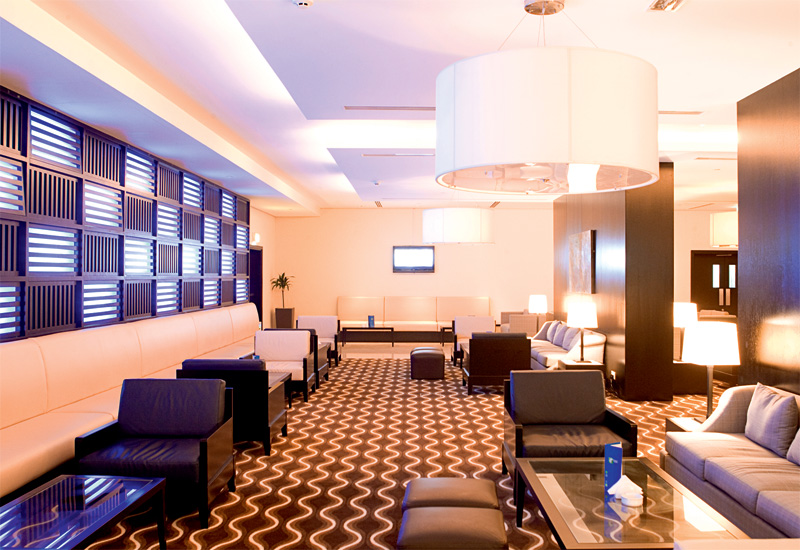 A peek inside Holiday Inn Express, Dubai International Airport: Budget hotel brands are stepping up their efforts to appeal to customers in markets su
A peek inside Holiday Inn Express, Dubai International Airport: Budget hotel brands are stepping up their efforts to appeal to customers in markets su
Harriet Sinclair investigates what savvy consumers in the Middle East expect from budget hotels and how these properties manage to offer great value as well as a range of facilities.
Budget hotels have established quite a reputation in the Middle East over the past two or three years, moving quickly from being an emerging product to a market segment that is meeting increasing demand for lower-priced but quality accommodation.
Though the region is often associated with big-name luxury hotels and iconic five-star properties, the mid market section has brought diversity to a market which would otherwise have alienated a hefty proportion of business and leisure tourists.

| Advertisement |
Following the global economic downturn, the budget hotel segment truly came into its own, with both local and international midscale brands claiming a slice of the market, and existing upscale brands improving and developing their own three-star properties.
As well as offering the minimum of a reasonably priced, clean room, budget hotels — otherwise known as limited service or mid-scale properties — have spruced up their services over the last few years, offering internet access, F&B outlets, gyms, and in some cases even a swimming pool.
Middle East market
Budget hotels across the world do not necessarily offer such an impressive list of services and those global brands operating in the region admit that the Middle Eastern market is different, largely due to the fact that customers here — accustomed as they are to the luxuries of the upscale segment — expect more from their budget experience.
It stands to reason, therefore, that mid-scale properties must continue to reflect the destination they are in. And, particularly in a market such as Dubai, this means keeping up with the proverbial Joneses and has resulted in a spate of mid-scale hotels with ‘added extras’ entering the market.
“In the Middle East there is a little more expectation as there is service excellence in this part of the world,” explains Holiday Inn Express Dubai cluster general manager Ziad el Khoury.
“The guest would like to see this reflected in budget hotels as well. For example we offer three meals — breakfast, lunch and dinner — and you don’t see this in any Holiday Inn Express around the world, but we made an exception to match the market that we are in,” he adds.
The good news for consumers is that once one budget hotel has set the bar high, others have little choice but to follow if they want to compete in the market.
Landmark hospitality general manager — hotel division, Michael Weyland, who is responsible for mid-scale chain Citymax agrees: “The reason that Citymax hotel has a pool and a gym in Dubai is because it is a market expectation.
“On the other hand, over the years now, the quality of the build and the design can be affordable but look very appealing and high-end, and this again goes in line with the expectations guests in the region have.
Even if they are getting great value for money and a great bargain, there is still a pool for example — it is standard now and that is what’s expected in this market,” he adds.
But though market expectations are high now, introducing budget hotels to the Middle East market did take some getting used to, says Premier Inn Dubai Airport general manager Paul Bridger, as although customers were happy with the price, it took some time to educate guests about what a limited service hotel actually offered.
“It took people who weren’t familiar with budget hotels a while to understand why they couldn’t charge things back to their room and why they had to pay when they turned up,” he explains.
“But we do that because it makes it easier and it means we have less people so we ultimately have lower costs, and I think people are now familiar with that. When we first came out we had a lot of challenges with people saying I want to charge this to my room, but now they have realised they are getting great value,” Bridger adds.
The initial reluctance of the market to accept the mid-scale model can prove problematic, agrees Centro Barsha Dubai hotel manager Sherif Madkour, which is why added extras such as pools, gyms or F&B outlets are an important part of changing people’s perspectives.
“Dubai has been always seen as a very rich, unaffordable area,” explains Madkour.
“But now when you come to Dubai, you can stay in a lovely, trendy place and you pay US $100 or even $90, so it means it is affordable to lots of leisure people now. And I think Dubai realised that this segmentation was needed, so you can see three-star brands coming up heavily now in the market and Centro is one of these brands which has been created by our head office to match the needs of this demand.
“Of course there is some hesitation from the local market still; people are not used to the product. The local market, especially Arab customers, are used to valet parking and room service, but slowly people are getting used to what we offer, the feedback we are receiving now is that day by day, they are becoming more used to it,” he adds.








 Search our database of more than 2,700 industry companies
Search our database of more than 2,700 industry companies









